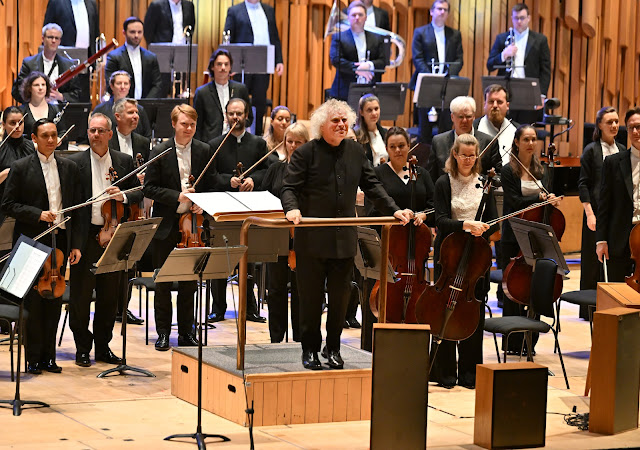Temple Church
Byrd: Emendemus in meliusByrd: O Lord, make thy servant Elizabeth; Sing joyfully; ‘Great Service’: Nunc Dimittis
Byrd: Vide Domine afflictionem nostram; Haec dies quam fecit Dominum; Ne irascaris, Domine
Byrd: Retire my soul; Ave verum corpus; Laudate Dominum, omnes gentes; Optimam partem elegit; Factus est repente; Mass for Four Voices: ‘Agnus Dei’
Morley: Domine, Dominus noster
Philips: Ecce vicit Leo
Tomkins: Too much I once lamented
Byrd: Laudibus in sanctis
Temple Music’s William Byrd Festival, commemorating the 400th anniversary of the composer’s death, offers two lectures, three services, and four concerts. Prior commitments mean I have had to restrict myself to two of the concerts, but if the rest is anything like this opening event from Stile Antico, listeners would be well advised to flock to the Temple Church now. Bookended by two Latin motes from the Cantiones sacrae (1575 and 1589 incarnations), the rest of the programme took a broadly thematic tour through Byrd’s life and career, offering four sets: ‘“A good egg” – Byrd, the loyal subject,’ ‘“The caged bird” – Byrd, the Catholic at court,’ ‘“A country nest” – Byrd the Essex Gentleman,’ and finally ‘“Under his wing” – Byrd the “much reverenced master”.’
The opening Emendemus in Melius made for a splendid concert introit, Stile Antico’s sound warm and rounded, doubtless assisted further by the Temple acoustic—and, of course, by Byrd’s music itself. Indeed, it was difficult not to believe whilst listening that any composer, even Bach or Mozart, could offer a more excellent balance between harmony, counterpoint, and momentum. Inner points, subtly yet tellingly prominent, proved a thing of wonder in themselves.
A more overtly Anglican – at least to us, if the anachronism might be forgiven – Byrd was to be heard in the following three pieces. O Lord, make thy servant Elizabeth has additional resonances for us, of course, not least in the wake of last year’s departure of the second Elizabeth. It received a fine performance here, again of considerable warmth, with finely judged dissonances, none of which eclipsed a proper sense of direction. Sing joyfully, coming from three decades later in the 1590s, reprised for the baptism of James I’s daughter Mary in 1605, had a smaller ensemble of six solo voices: animated and, yes, joyful, it was finely, not fussily, shaded, for instance on the psalmist’s exhortation to ‘blow the trumpet in the new moon’. The other ensemble members returned for a Nunc dimittis from the ‘Great Service’ with an apt sense of eventide peace, a ravishing surge of light for ‘thy people Israel’, and a warmly enveloping doxology.
Three Latin motets from the Cantiones sacrae followed: works not for public worship, but private devotion (and connoisseurship). Vide, Domine, afflictionem nostrum and Ne iracaris, Domine, both implicitly comparing the fallen Jerusalem to the condition of the Roman Catholic Church, brought with them a sense of weight, even grief, balancing the latter with not a little defiance. The latter, dark, plaintive, yet illuminated, managed to inform our own very different current causes for grief more than four centuries later, its astonishing harmonies biting as if yesterday, yet never for their own sake, as one might hear in, say, Gesualdo. ‘Expression’ may mean something different today, but one could persuade oneself – Byrd, even, could persuade one – that it was close enough. In between, the Easter Haec dies quam fecit Dominus was relished for its madrigalian style and contrasting brightness of mood and message.
Following the interval, we moved to Byrd’s later years and to music probably written for recusant performance in the Catholic chapel of Byrd’s patron Sir John Petre in Stondon Massey, Essex. To quote Andrew Griffiths’s programme note, ‘The music of Gradualia,’ Byrd’s complete cycle of music for Catholic feasts, ‘could hardly be more different to the Cantiones motets. It radiates confidence...’ First, though, and from a distance, we heard the elegiac Retire my soul, Byrd setting his own words of final reckoning, from his final publication of 1611, the Psalms, Songs and Sonnets. Distance certainly lent enchantment here, not that that was lacking in what followed either. The Ave verum corpus, with its celebrated calls of ‘miserere mei’, their dissonances, and their resolution received a performance both rich and sad, as did the Agnus Dei from the Mass for Four Voices at the other end, its patient unfolding especially fulfilling. In between came a well-judged contrast of praise in the Laudate dominum, a sweet fruit of intimate Marian devotion, Optimam partem eligit, and a breath of fresh, Pentecostal air, replete with animating, transformative joy in the brief span of Factus est repente.
Music from the next generation brought, as one might expect, both affinity and contrast. Thomas Morley’s Domine, Dominus noster the work of a young composer strongly influenced by the older master, though surely in the line of other English composers too. Its method of unfolding and its dissonances marked the former. Peter Philips’s Ecce vicit Leo showed a Roman Catholic escaped to more favourable Continental climes, its Italianate style very different. Thomas Tomkins’s madrigal, Too much I once lamented, made for a subtle tribute from a small consort (just five voices). The final Byrd Laudibus in sanctis proved a rich, many-voiced song of praise, letting, as its text has it, the ‘harmonious psalteries with fine string sing of Him, … the joyful dance praise Him with nimble foot.’ As an encore, Thomas Weelkes’s Hosanna to the Son of David recognised another fine English composer deceased in 1623.




%20Ali%20Wright.jpg.jpg)
%20in%20Opera%20Holland%20Park's%202023%20production%20of%20Hansel%20and%20Gretel%20(c)%20Ali%20Wright.jpg)
%20Ali%20Wright%20(1).jpg)
%20in%20Opera%20Holland%20Park's%202023%20Production%20of%20Hansel%20and%20Gretel%20(c)%20Ali%20Wright.jpg)



